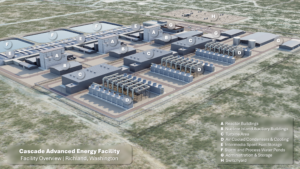More and more electricity is generated by natural gas. This trend is likely to persist. Hydraulic fracturing technology is increasing domestic supplies and enabling natural gas prices to remain at historic lows. These circumstances encourage fuel switching by electric generators. Cheaper fuel allows less-expensive electricity, but the long-term consequences of this trend could well be less-reliable electric service if the fuel used to generate a growing portion of the nation’s electric power lacks firmness.
Increasing Reliance on Gas
In August 2012, the Federal Energy Regulatory Commission (FERC) convened five regional conferences to address whether current market structures and regulations are adequate to support the electric sector’s increasing reliance on gas-fired generation. These conferences were well attended (by more than 1,200 registrants) and FERC was inundated with written comments and associated recommendations on whether the increasing use of gas in lieu of oil/coal was making electric service less reliable and, if so, how to solve this problem. In addition, concerns were raised about two related but subsidiary issues: communication, coordination, and information sharing across the electric and gas industry; and disconnects between the scheduling for electricity and gas.
In November, FERC issued a staff report summarizing the results of its information-gathering and an order directing actions on the two subsidiary issues. However, FERC left the threshold question unanswered: When power is needed, how best to ensure that generators with firm delivery obligations have reliable upstream fuel resources and, if they do not, who should bear the resulting reliability costs?
Based on regional conference comments, such electric resource adequacy is of greater concern in areas with organized capacity markets than in those areas where vertically integrated utilities operate. Organized capacity markets such as the Northeast and Mid-Atlantic do not currently provide an incentive for generators to purchase firm contracts for gas pipeline transportation. The staff report notes that “[p]articipants in virtually all regions with capacity markets indicated that their capacity markets do not consider the firmness of a generator’s fuel supply when clearing resources.” It adds that appropriate incentives to deliver firm energy are necessary to better ensure that gas-fired generators are able to reliably deliver firm energy; reliance on nonfirm pipeline capacity to deliver gas to power plants is inconsistent with the firm energy delivery obligation.
In areas where there are vertically integrated utilities, such as the Southeast, the correlation between the firmness of delivery of natural gas to power plants and resource reliability appears to be less of an issue. Many entities are subject to integrated resource planning requirements that specify that electric generators have firm pipeline transportation service and/or storage.
Unresolved Cost Allocation
At the regional conferences, pipeline operators, not surprisingly, urged that generators be required to hold firm capacity/storage. Generators maintain that pipelines should (and some already have) design more flexible transportation services that can meet generator seasonal demands without potentially costly gas system expansions. Natural gas local distribution companies (LDCs) appear wary of electric industry suggestions that regional gas infrastructure planning is needed. The LDCs also complain that the costs of serving electric generator variability are already being shifted improperly to LDCs and ultimately to their customers.
Yet the staff report shies away from offering any possible remedies or even a path for resolution with respect to the consequences of less-than-firm transportation service and electric resource adequacy. FERC concurs with the staff report that “resource adequacy issues… should continue to be addressed in the first instance by market participants, states, and other stakeholders in each region.”
Consistent with FERC’s “deferral to the regions” approach, the North American Electric Reliability Corp. (NERC) generally favors a requirement for generator “firmness” that would account for the multiple ways to firm up the fuel supply, but NERC nonetheless does not see a need for a national standard. It concurs that the issues can be addressed on a regional basis. More recently, however, a consulting firm has proposed that from a system reliability standpoint, NERC should act by redefining “firm power” on a fuel-neutral basis so that generators who want to bid into power markets would have to firm up fuel reliability.
FERC Defers Decision
That electric resource adequacy is not an immediate concern in all parts of the country is not an adequate reason for FERC to defer to the regions for solutions. Indeed, resource reliability concerns are most pressing in organized regional transmission organization/independent system operator capacity markets that are already comprehensively regulated by FERC. Nor is the fact that organized markets vary in design an adequate excuse for deferral. The costs of ensuring that natural gas–powered generators are delivered fuel sufficient to ensure electric resource adequacy will be substantial regardless of the resolution.
Understandably, and as made clear by the staff report, stakeholders differ widely on how to proceed, and their proposals typically align with their economic interests in the outcome. That these issues may be difficult to resolve is not an excuse for inaction. FERC needs to commence the appropriate proceeding designed to provide a national and comprehensive policy direction for the electric and gas industries on this imperative issue.
— Barbara S. Jost (barbarajost@dwt.com) is a partner in the Washington, D.C., office of the law firm Davis Wright Tremaine LLP.










